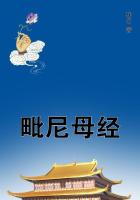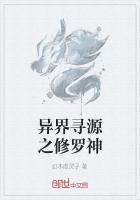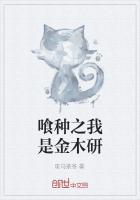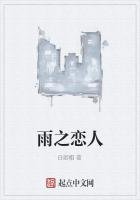One morning about a week after Marcus had left for the southern part of the State, McTeague found an oblong letter thrust through the letter-drop of the door of his "Parlors."
The address was typewritten. He opened it. The letter had been sent from the City Hall and was stamped in one corner with the seal of the State of California, very official; the form and file numbers superscribed.
McTeague had been ****** fillings when this letter arrived.
He was in his "Parlors," pottering over his movable rack underneath the bird cage in the bay window. He was ****** "blocks" to be used in large proximal cavities and "cylinders" for commencing fillings. He heard the postman's step in the hall and saw the envelopes begin to shuttle themselves through the slit of his letter-drop. Then came the fat oblong envelope, with its official seal, that dropped flatwise to the floor with a sodden, dull impact.
The dentist put down the broach and scissors and gathered up his mail. There were four letters altogether. One was for Trina, in Selina's "elegant" handwriting; another was an advertisement of a new kind of operating chair for dentists; the third was a card from a milliner on the next block, announcing an opening; and the fourth, contained in the fat oblong envelope, was a printed form with blanks left for names and dates, and addressed to McTeague, from an office in the City Hall. McTeague read it through laboriously. "I don' know, I don' know," he muttered, looking stupidly at the rifle manufacturer's calendar. Then he heard Trina, from the kitchen, singing as she made a clattering noise with the breakfast dishes. "I guess I'll ask Trina about it," he muttered.
He went through the suite, by the sitting-room, where the sun was pouring in through the looped backed Nottingham curtains upon the clean white matting and the varnished surface of the melodeon, passed on through the bedroom, with its framed lithographs of round-cheeked English babies and alert fox terriers, and came out into the brick-paved kitchen. The kitchen was clean as a new whistle; the freshly blackened cook stove glowed like a negro's hide; the tins and porcelain-lined stew-pans might have been of silver and of ivory. Trina was in the centre of the room, wiping off, with a damp sponge, the oilcloth table-cover, on which they had breakfasted. Never had she looked so pretty.
Early though it was, her enormous tiara of swarthy hair was neatly combed and coiled, not a pin was so much as loose.
She wore a blue calico skirt with a white figure, and a belt of imitation alligator skin clasped around her small, firmly-corseted waist; her shirt waist was of pink linen, so new and crisp that it crackled with every movement, while around the collar, tied in a neat knot, was one of McTeague's lawn ties which she had appropriated. Her sleeves were carefully rolled up almost to her shoulders, and nothing could have been more delicious than the sight of her small round arms, white as milk, moving back and forth as she sponged the table-cover, a faint touch of pink coming and going at the elbows as they bent and straightened. She looked up quickly as her husband entered, her narrow eyes alight, her adorable little chin in the air; her lips rounded and opened with the last words of her song, so that one could catch a glint of gold in the fillings of her upper teeth.
The whole scene--the clean kitchen and its clean brick floor; the smell of coffee that lingered in the air; Trina herself, fresh as if from a bath, and singing at her work; the morning sun, striking obliquely through the white muslin half-curtain of the window and spanning the little kitchen with a bridge of golden mist--gave off, as it were, a note of gayety that was not to be resisted. Through the opened top of the window came the noises of Polk Street, already long awake. One heard the chanting of street cries, the shrill calling of children on their way to school, the merry rattle of a butcher's cart, the brisk noise of hammering, or the occasional prolonged roll of a cable car trundling heavily past, with a vibrant whirring of its jostled glass and the joyous clanging of its bells.
"What is it, Mac, dear?" said Trina.
McTeague shut the door behind him with his heel and handed her the letter. Trina read it through. Then suddenly her small hand gripped tightly upon the sponge, so that the water started from it and dripped in a little pattering deluge upon the bricks.
The letter--or rather printed notice--informed McTeague that he had never received a diploma from a dental college, and that in consequence he was forbidden to practise his profession any longer. A legal extract bearing upon the case was attached in small type.
"Why, what's all this?" said Trina, calmly, without thought as yet.
"I don' know, I don' know," answered her husband.
"You can't practise any longer," continued Trina,--"'is herewith prohibited and enjoined from further continuing----
'" She re-read the extract, her forehead lifting and puckering. She put the sponge carefully away in its wire rack over the sink, and drew up a chair to the table, spreading out the notice before her. "Sit down," she said to McTeague. "Draw up to the table here, Mac, and let's see what this is."
"I got it this morning," murmured the dentist. "It just now came. I was ****** some fillings--there, in the 'Parlors,' in the window--and the postman shoved it through the door. I thought it was a number of the 'American System of Dentistry' at first, and when I'd opened it and looked at it I thought I'd better----"
"Say, Mac," interrupted Trina, looking up from the notice, "DIDN'T you ever go to a dental college?"
"Huh? What? What?" exclaimed McTeague.
"How did you learn to be a dentist? Did you go to a college?"
"I went along with a fellow who came to the mine once. My mother sent me. We used to go from one camp to another. I sharpened his excavators for him, and put up his notices in the towns--stuck them up in the post-offices and on the doors of the Odd Fellows' halls. He had a wagon."

